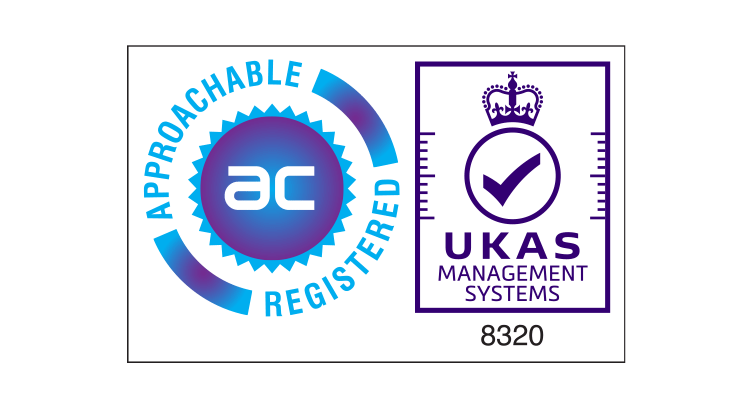What is Job Management?
Let’s face it, managing field service operations can be a tough nut to crack. Just ask TechTarget. With many tasks to juggle, roles to coordinate, and field workers to manage, it’s no walk in the park. This is where job management steps in.
This dynamic process allows field service managers and office staff to keep tabs on jobs, tasks, and field workers and is an essential feature for businesses seeking efficient workflows.
However, job management has its challenges. The process can quickly become overwhelming if you rely on outdated systems or basic methods like spreadsheets. It’s like trying to navigate a ship through a storm with a compass and a hand-drawn map instead of GPS and Radar. It’s in these choppy waters that the strength of a digital job management system truly shines through.
What is Job Management?
Job management is a systematic approach to operations management encompassing all activities within the job or work cycle, from the cradle to the grave (grim imagery). It’s the process of overseeing and coordinating all tasks and activities required to complete service jobs or assignments. This ensures all jobs are completed and invoiced on time, keeping your customers happy.
Achieving this involves keeping track of many details, ensuring the right people are assigned to each job, and ensuring everything stays on schedule. Key elements include scheduling, resource allocation, progress tracking, and customer engagement, forming what is known as the job or work order cycle. Explore the capabilities of mobile work order management software to understand how job management can enhance your business operations.
The Job Life-Cycle: A Comprehensive Overview
The job life-cycle is a bit like a well-choreographed dance. It’s a series of steps that, when performed correctly, result in a seamless flow of tasks from start to completion. Let’s break it down:
- Job Creation and Assignment: This is where it all begins. A job is identified, defined, and assigned to a field worker. This might sound simple, but it’s a critical step. The right job must be assigned to the right person at the right time.
- Job Scheduling and Dispatch: Once the job is assigned, it needs to be scheduled, and the field worker dispatched. This involves coordinating schedules, managing resources, and ensuring the field worker has all the required information to complete the job.
- Job Execution and Tracking: Now, the field worker is out in the field, executing the job. Back at the office, the job must be tracked to ensure it progresses as planned. This involves monitoring the status of the job, following the field worker’s location, and managing any issues that arise.
- Job Completion and Review: Finally, the job is completed. But the cycle doesn’t end here. The job needs to be reviewed to ensure it was completed well and identify any improvement areas. This is the post-match analysis, looking at what went well and what could be done better next time.
When this cycle is optimised, it’s a thing of beauty. Jobs flow smoothly from one stage to the next, field workers are productive and efficient, and customers are satisfied. Advanced platforms offer services like sub-contractor management, remote assistance and supply chain management to optimise every step of the process.
What are the features I should look for?
Nearly half of all service organisations are turning to digital job management tools to encompass all activities, and it is only rising. Job management systems equip companies with the necessary features, technology, and automation to streamline operations, significantly reducing the burden of a manual system and enhancing the overall job cycle management process.
Job management software is about more than just replacing pen and paper or spreadsheets. It’s about providing real-time visibility into operations, enabling proactive decision-making, and delivering superior customer service. This will make life easier for everyone involved in the job management process, from the supply chain teams to the schedulers balancing jobs to the contractors on the front line. Learn how to revolutionise your business with our comprehensive guide to job management.

Key features to look for:
Job Status Dashboards
Look for solutions that provide real-time service insights. Risk reports and action items should be easily viewed and constantly updated, helping deliver efficient services consistently.
Accurate Job Costings
Job management software should enable you to cost a job there and then. Preferred solutions should provide a line-by-line breakdown of each work area and the total cost of a job over time. This offers better cost control.
Real-Time GPS
The ability to track the status of jobs and the location of field workers in real-time is crucial. This enables office staff to monitor progress, manage issues as they arise, and keep customers informed.
Mobile Access
Field workers need to be able to access job information, update job status, and communicate with the office from wherever they are. Look for software that includes a mobile app or mobile-friendly interface.
Reporting and Analytics
Look for software that includes comprehensive reporting and analytics capabilities. This will enable you to track performance, identify trends, and make data-driven decisions.
Integration Capabilities
Seek a solution that integrates with other systems you use, such as accounting software, customer relationship management (CRM) systems, and inventory management systems. This will enable you to streamline processes and avoid double data entry.
Scheduling and Dispatch
Look for software that makes scheduling jobs and dispatching field workers easy. This should include viewing all jobs and field workers on a single screen, drag-and-drop scheduling, and automatic dispatch based on predefined rules.
Job management is a critical process for any field service business. However, managing this process can be challenging without the right tools. Job management software provides the features, technology, and automation needed to streamline operations, improve efficiency, and enhance customer service. Choosing the right software can transform your job management process and take your business to the next level.
Key Benefits
The beauty of job management software lies not just in its ability to streamline operations but also in the many benefits it brings to the table. Let’s delve into some of these advantages:
- Increased Efficiency and Productivity: By automating routine tasks, this software frees up time for your team to focus on more critical aspects of their work. It’s like having an extra pair of hands, taking care of the mundane so your team can concentrate on delivering exceptional service.
- Improved Communication and Collaboration: Job management software acts as a central hub for all job-related information, fostering better communication and collaboration among team members. Everyone has access to the same information and can work together seamlessly.
- Enhanced Tracking and Reporting: With real-time tracking and comprehensive reporting features, job management software provides valuable insights into your operations. It delivers a bird’s eye view of your business, helping you make informed decisions and improve your services.
- Better Customer Service and Satisfaction: By improving efficiency and communication, job management software leads to better customer service. Jobs are completed on time and to the highest standard, increasing customer satisfaction and costly SLA breaches.
- Compliance with standards: With enhanced control and increased visibility of operational processes, job management software identifies and deals with risks early, ensuring timely service delivery that meets required standards.

Industries That Benefit from Job Management Software
The job management cycle is a bit like a well-choreographed dance. It’s a series of steps that, when performed correctly, result in a seamless flow of tasks from start to completion. Let’s break it down:
- Field Service Industry: From logistics to HVAC, businesses in the field service industry can significantly benefit from job management software. Job management enables resources and information to be shared across your operation, leading to a cohesive IT landscape.
- Property Management: With multiple projects, teams, and tasks, property management can significantly benefit from job management software. It’s like having a dedicated site manager with an overview of all ongoing projects, ensuring everything runs smoothly and is delivered to tenants on time. Enhanced communication improves the time to resolution and first-time fix rates with greater control given to service users.
- IT and Tech Support Industry: In an industry where timely response and efficient service are crucial, job management software can be a game-changer. It ensures that all support tickets are handled promptly and effectively.
- Healthcare Industry: From scheduling patient appointments to managing medical equipment maintenance, job management software can streamline operations in the healthcare industry. It ensures all tasks are handled efficiently, and patient care is not compromised.
See how our job management software can be applied across various industries to streamline operations.
Reflecting on the Impact of Effective Job Management in Field Services
Job management is a vital process that keeps the wheels of various industries turning. However, it can quickly become a daunting task without the right tools. Job management software helps transform businesses struggling with manual or outdated systems.
Job management software is a powerful tool for businesses. It streamlines operations, improves communication, enhances tracking and reporting, and leads to better customer service. Job management software can be a secret weapon for success in any sector. This includes field service, property, IT and tech support, healthcare, and others that rely on efficient job management. For more insights on the impact of effective job management, visit our work order management blog.




Conclusion
Managing jobs is no small feat. It’s a dynamic process that requires a keen eye for detail, a knack for coordination, and a steady hand to guide the workflow. But with the right tools, you can transform it from a daunting task into a smooth and efficient process. That’s where job management software comes into play.
It’s more than just a digital tool; it’s a game-changer. From increasing efficiency and productivity to improving communication and customer service, the benefits are manifold.
As we move forward in this digital age, adopting job management software is not just an option; it’s a necessity for businesses seeking to stay ahead of the curve. Whether you’re just starting your field service journey or looking to optimise your existing operations, consider job management software your next step towards service excellence. Get started with our comprehensive guide to job management.
In the end, this is not just about getting the job done; it’s about getting it done right. So, here’s to efficient workflows and satisfied customers!








